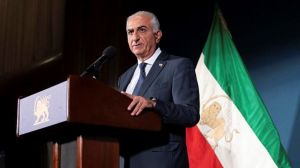Problem of initials
Early this year Pakistan Prime Minister Shaukat Aziz offered to ship cement to India to meet the shortfall in supply.

Early this year Pakistan Prime Minister Shaukat Aziz offered to ship cement to India to meet the shortfall in supply. But Pakistani cement consignments were kept waiting for so long at Mumbai harbour that the cement solidified due to the moisture in the air. The Pakistanis were understandably furious. The hold-up was because of the mandatory requirement to have the quality of the cement certified by the Indian Standards Institute.
To speed up the process, it was decided that inspectors from the Indian Standards Institute would be sent directly to Pakistan to check out the cement quality at the factory sites. The system is working well 8212; except for one snag. Port trust authorities are rattled by the sight of huge containers from Pakistan at the harbour with stickers which announce 8216;Cleared by ISI8217;, since those letters are also the fear-rousing initials of Pakistan8217;s notorious intelligence agency.
CPI8217;s 1-2-3 dilemma
A 1-2-3 tussle of a different sort is taking place in the CPI. There is a wrangle over who is the senior-most in the party after A.B. Bardhan, the 81-year-old general-secretary. Bardhan, who succeeded Indrajit Gupta as general-secretary in 1996, indicated in August this year that he would like to step down from active politics. That means the party will have to look for a new face as general-secretary when it meets in Hyderabad in March next year at the party Congress.
Party secretary D. Raja, a familiar face on TV, who is close to Bardhan and is generally party spokesperson, seemed the most likely choice as successor. But two others have staked their claim. Sudhakar Reddy, the party secretary from Andhra, is a grassroots leader who is respected for his skills as a strategist and organiser. Gurudas Dasgupta is the party8217;s parliamentary leader and AITUC general-secretary and represents the powerful Bengal lobby. To prevent an unseemly power struggle, a proposal has been mooted that the CPI amend its constitution and create four posts of deputy general-secretary. If a consensus eludes the next congress over the choice of general secretary, Bardhan may be persuaded to continue for a while and the other three appointed his deputies.
Ministering angel
Union Railway Minister Lalu Prasad Yadav bumped into some labourers from Bihar hired for construction work in Delhi8217;s Rail Bhavan. Realising that the workmen transporting building material in the lift were from his home state, he turned on the famous Lalu charm. After chatting with them for a while, Lalu finally left, but not before ordering an accompanying official to take down the names of the workers and ensure that the cashier paid the 20-odd men Rs 1,000 each. That posed a dilemma for the railway authorities, who were not sure under what head such a grant could be made. Nevertheless, the men were indeed handed over the money by the afternoon.
Word of Lalu8217;s generosity spread among the construction workers of Delhi, and by the next day a large number were thronging the entrance of Rail Bhawan to meet the minister. Lalu had to sneak into the building from another gate.
Milking a vendetta
The hit job on Jaswant Singh to get a case registered against him under the anti-narcotics act was planned with the help of a section in the Jaipur media. News reports about the allegation that milk served at the party was laced with opium, not saffron, came two days after the event in far-off Jasola village in Barmar village. Jodhpur newspapers closer to the venue of the Jaswant meet carried detailed reports of the anti-Vasundara Raje dissidents8217; get-together at Singh8217;s village a day earlier, but there was no mention of any laced milk.
Surprisingly, the BJP high command failed to issue a statement in support of its Leader of Opposition in the Rajya Sabha, indicating that the war of attrition in the party has engulfed not just the state unit but its central leadership.
- 01
- 02
- 03
- 04
- 05































